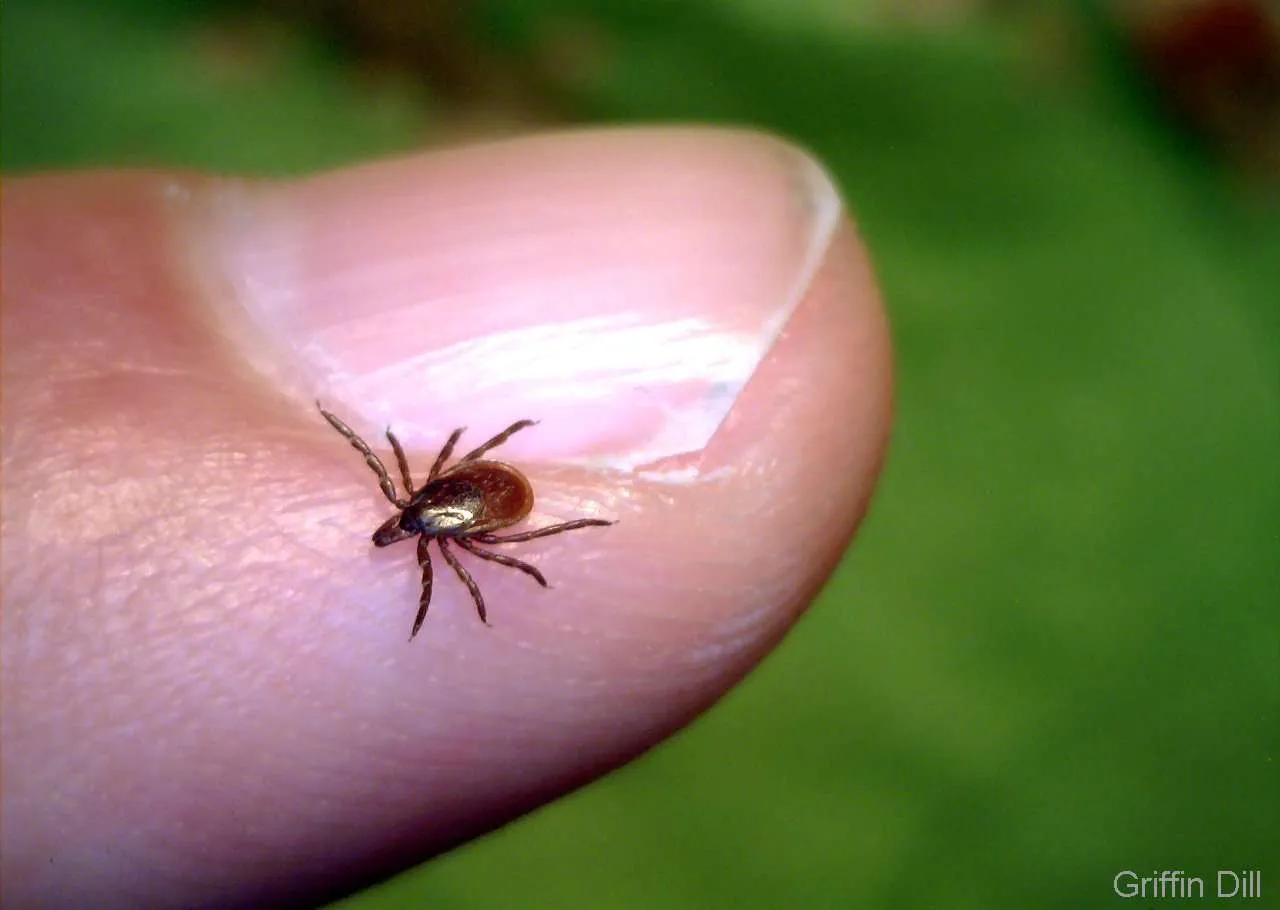Sanford Man Identified as Maine’s First Powassan Virus Fatality of 2024
- June 28th 2024
- Health & Wellness

An adult female deer tick
Photo: Griffin Dill
A Sanford resident has been identified as the first fatal case of the rare Powassan virus in Maine this year. Ronnie Bell, 81, father of Pastor Todd Bell of the Calvary Baptist Church, passed away on May 8 at Southern Maine Health Care in Biddeford. The Maine Center for Disease Control and Prevention (Maine CDC) recently announced that a York County resident had died of the illness; Bell’s family confirmed he was the victim.
According to a press release from the CDC, the last death from the tickborne virus in Maine occurred in May 2023. Bell’s is among three cases of Powassan virus infection reported in Maine residents so far this year. The other two were in Kennebec and Lincoln counties.
Powassan virus is rare, with about 20–50 cases reported per year across the country from 2018–2023. Maine identified a record number of seven cases of Powassan in 2023 and has recorded 25 infections of the virus since 2014, including four deaths in the last decade. By comparison, in 2023, Maine CDC identified a record 2,943 cases of Lyme disease, the most common tickborne disease in Maine. Other tickborne illnesses include anaplasmosis, babesiosis, hard tick relapsing fever and ehrlichiosis. Overall, Sanford has a relatively low incidence of tickborne illnesses compared to midcoast towns in Hancock, Lincoln, Waldo and Knox counties.
People acquire Powassan through the bite of an infected deer or woodchuck tick. Deer ticks are the most common vector of all tickborne diseases in Maine. They can be active any time the temperature is above freezing, but are most active in the spring, summer, and fall. The Powassan virus may spread from ticks to people in as little as 15 minutes after a bite.
Many people infected with Powassan virus do not get sick or have symptoms. For people who develop symptoms, the time between tick bite and feeling unwell can be up to one month. Symptoms can include fever, headache, vomiting, weakness, confusion, seizures, or memory loss. Some may experience serious neurologic problems, like brain or spinal cord inflammation.
About 10 percent of people with severe disease die. People with weakened immune systems have a higher risk of developing these severe symptoms. If you experience any of these symptoms after a tick bite, call a health care provider as soon as possible.
Ticks live in wooded, leafy, and shrubby areas. The best protection against all tickborne diseases is to prevent tick bites. Following these tips can help keep you from getting sick from a tick:
- Know tick habitat and take precautions in areas where ticks may live.
- Wear light-colored clothing that covers the arms and legs; tuck pants into socks.
- Use an EPA-approved repellent like DEET, picaridin, IR3535, or oil of lemon eucalyptus on skin; use permethrin on clothing.
- Check for ticks daily and after any outdoor activity. Check family members and pets too.
- Ask a veterinarian about tick bite prevention for cats and dogs.
- Remove your clothing when you get home and put it in the dryer before washing. Use high heat for 10–15 minutes to kill any crawling ticks that have not attached to you.
For more information, visit the Maine CDC Powassan virus website here.






